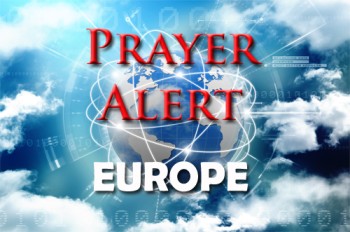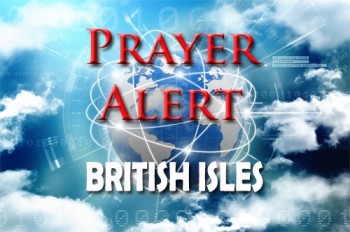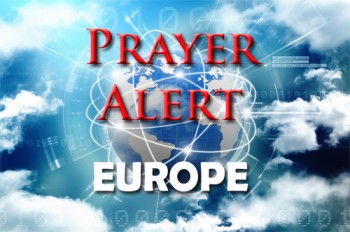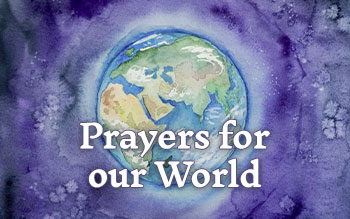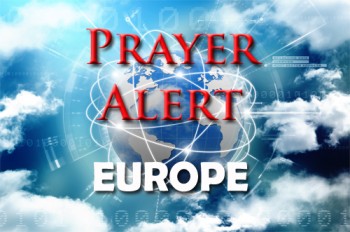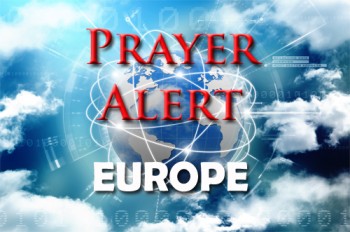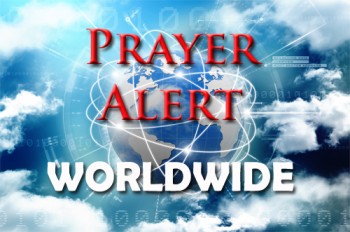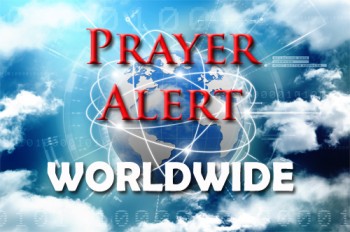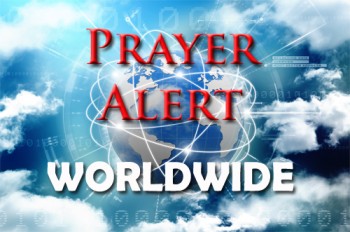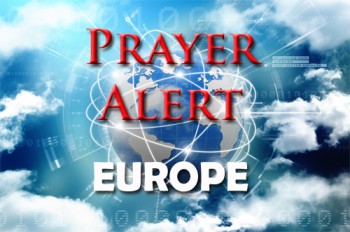Displaying items by tag: summit
Ukraine claims significant gain as European leaders meet
Ukraine has reported a significant battlefield development, with its armed forces reclaiming control over nearly 90% of the strategically important city of Kupiansk in the Kharkiv region. Commander-in-Chief Oleksandr Syrskyi announced the advance during a meeting with international allies, crediting targeted ‘search-and-strike’ operations and the resilience of his troops. Kupiansk, close to the Russian border, has long been a critical logistical hub and a focal point of intense fighting. Analysts say the Ukrainian gains could ease pressure on nearby frontline areas and disrupt Russian supply routes, though the wider conflict remains volatile, especially as winter conditions worsen. The update shows the fluid and contested nature of the war and the ongoing human and strategic costs of the conflict. Ukraine has also claimed to have destroyed a Russian submarine in the Black Sea: see Meanwhile, in a crucial summit on 18 December, at the time of writing European leaders are deadlocked on the thorny issue of whether to use frozen Russian funds to help Ukraine. See
Taoiseach praises UK-Irish 'reset' ahead of joint summit
Irish Taoiseach Micheál Martin met Keir Starmer in Liverpool ahead of a historic UK-Irish summit. The event brings together cabinet members from both governments to strengthen ties in trade, energy, and security. Discussions will focus on economic growth, investment, and cooperation in renewable energy, technology, AI, and security. A new data-sharing agreement will be announced to boost offshore energy production. Additionally, Ireland will unveil £185.5 million in investments in the UK, expected to create over 2,500 jobs. The summit is taking place amid heightened security concerns in Europe. Martin praised Starmer’s leadership, emphasising the importance of peace and international cooperation. Starmer expressed his commitment to deepening UK-Irish relations, stating that previous ties had not reached their full potential. This meeting marks a new era of collaboration, reinforcing economic and diplomatic ties between the two nations. The summit concludes before Martin attends a European Council meeting in Brussels.
Ukraine: Zelensky optimistic as he meets different leaders
Volodymyr Zelensky has expressed optimism that the current battlefield dynamics could create a chance to end Russia’s invasion by 2025. Speaking at a summit meeting in Dubrovnik, Croatia, he highlighted the importance of Ukraine’s allies, particularly the USA, in achieving peace and long-term stability. He noted that October, November, and December present ‘a real chance’ for decisive action, but did not explain how that would happen. Russian forces now hold nearly 20% of Ukraine's territory, and are closing in on another key town, Toretsk. Zelensky also called for Ukraine’s integration into NATO as a means to strengthen its position in any potential negotiations with Russia. At the time of writing he is in London, to meet Keir Starmer and Mark Rutte, NATO’s secretary general, and will then fly to Rome to meet Pope Francis.
NATO Summit: China presents a security risk
Nato leaders have declared China presents a security risk at their annual summit in Brussels, the first time the traditionally Russia-focused military alliance has asserted it needs to respond to Beijing’s growing power.
The final communique, signed off by leaders of the 30-member alliance at the urging of the new US administration, said China’s “stated ambitions and assertive behaviour present systemic challenges to the rules-based international order”.
The Nato leaders declared their concern about China’s “coercive policies” – an apparent reference to the repression of the Uyghur Muslims in Xinjiang – the expansion of its nuclear arsenal and its “frequent lack of transparency and use of disinformation”.
The language, notably stronger than the China remarks contained in the G7 statement agreed on Sunday, follows lobbying and pressure by the Biden administration, seeking to create a counterweight of democratic nations in response to Beijing’s growing economic and military might.
American President Biden is seeking to build an international consensus against China and has used the G7 and NATO summits to support this. China has issued strong rebuttals, saying “The U.S. is ill and very ill indeed” and that “the G-7 had better take its pulse and come up with a prescription.”
Pray: that our leaders will continue to show strength and courage as they stand up for what is right and good. (1 Tim 2:1-4)
Pray: that the language of diplomacy will bring peace and hope and subdue the language of confrontation and threat.
More / Sources: The Guardian, Bloomberg
Switzerland: Geneva summit for Biden and Putin
US president Joe Biden and Russia's president Vladimir Putin will hold their first summit on 16 June in Geneva, setting the stage for a new chapter in their fraught relationship. The leaders will discuss the full range of pressing issues, seeking to restore predictability and stability to the US-Russia relationship. The Kremlin said that Putin and Biden would be discussing ‘issues of strategic stability,’ as well as ‘resolving regional conflicts’ and the Covid-19 pandemic. Biden, making his first international trip as president, will go to Geneva immediately after separate summits with his key Western allies in the G7, NATO, and the EU. To prepare the ground, US secretary of state Antony Blinken and veteran Russian foreign minister Sergei Lavrov met last week in Reykjavik. After their meeting, a Kremlin spokesman, Dmitry Peskov, said that repairing ties ‘will not be easy’, but he saw ‘a positive signal’.
EU summit: members’ solidarity tested
EU leaders met electronically on 23 April to begin tentatively to unlock the nations’ businesses as the immediate health crisis eases. Restarting Europe’s economy has led to divisive debates over grants: ultimately, how should the wealthier north help out the harder-hit south? The argument over solidarity has become a bitter one, with some favouring ‘coronabonds’ or ‘Eurobonds’ and others preferring grants or a 1.5 trillion recovery fund. Let us pray that all decisions made will successfully help those most in need. May the next steps include a huge increase in the EU budget, so that every member state overcomes the crisis together, leaving no nation behind carrying heavy unmanageable debts. Observers note that EU institutions have struggled to get leaders to put aside their national interests.
North Korea / USA / Iran: nuclear programmes
South Korea’s national intelligence service told a closed-door parliamentary audit session that it expected working-level denuclearisation talks between Kim and Trump to resume by early December. As recently as 31 October Kim test-fired two short-range missiles that traveled 350 to 400 kilometres. The tests were believed to be the nuclear-armed country’s 19th and 20th launches since May. Japan’s prime minister condemned the launches as an act threatening the peace and safety of his country as North Korea was refining weapons capable of reaching it. Meanwhile, Iran announced launching a new batch of advanced centrifuges to accelerate uranium enrichment on the 40th anniversary of the start of its Islamic Revolution. However, Tehran has left room for diplomacy by saying that talks are possible if Washington lifts all the sanctions and returns to the nuclear deal. See
USA: UN general assembly
Ninety heads of state attended the annual UN general assembly this week. Every September kings, presidents and prime ministers fly to New York City and attend the UN headquarters. The top priority at its 74th General Assembly is the world's climate emergency. Country leaders were told not to speak without ‘concrete and transformative plans’ to halt rising global temperatures, achieve carbon neutrality and cut carbon emissions by 45%. But VIPs with proposals only had three minutes to speak. Then the UN will collate speeches and brainstorms into a report. Angela Merkel attended the climate summit, but skipped the rest of the week. Donald Trump skipped the climate summit and attended different sessions. How concrete the summit results will actually be is unclear. Meanwhile an angry Greta Thunberg told global leaders, ‘We are in the beginning of a mass extinction and all you can talk about is money and fairy tales of eternal economic growth. How dare you?’ See
Bahrain: Trump’s summit (25-26 June)
Donald Trump’s ‘Peace to Prosperity’ summit in Bahrain will mark the first phase of the roll-out of US plans for solving the Israeli-Palestinian conflict. But a Palestinian Authority spokesman has said that they will not be sending a representative. Some reports indicate that private Palestinian representatives will attend. Bahrain and the United States are hosting the economic leadership ‘workshop’ to share ideas, discuss strategies, and galvanise support for potential economic investments and initiatives that could be made possible by the upcoming US peace agreement. Although the United Arab Emirates and Saudi Arabia are sending delegations to participate, the spokesman said that any Palestinian who takes part will be nothing but a collaborator for the Americans and Israel.
Russia: Kim’s visit
President Vladimir Putin was ‘pleased’ with the outcome of his 25 April meeting in Vladivostok with North Korean leader Kim Jong-un, saying he would discuss the results with his Chinese counterparts when he travels to Beijing later. Many believe that after the diplomatic failure with Trump at Hanoi, Kim wants to prove he is still being sought after by world leaders; he does not want to look too dependent on Washington, Beijing, and Seoul. Also 10,000+ North Korean labourers working in Russia’s logging industry have to leave by the end of 2019, as UN sanctions take effect. The workers provided a revenue stream of hundreds of millions of dollars that Kim’s regime would like to keep flowing. As for Russia, the Putin-Kim summit will reaffirm Moscow's place as a major player on the Korean peninsula, and improve Russian international prestige. See also
